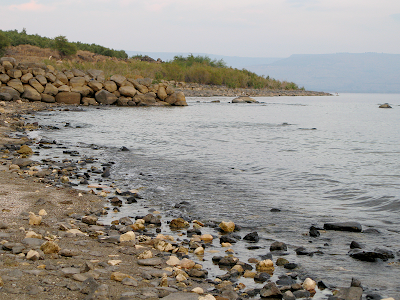 |
| A city on a hill - Ostuni, Italy |
Jesus is well aware that we, too, are hemmed in by religious traditions and habits on the one hand, and inflexible structures on the other. And in the same way, he wants to gather us together under his wings. But are we willing? If we are not, he will criticise our religious tradition and allow our structures to be destroyed in order to save us from our own error and foolishness. Let’s not mislead ourselves, religion and structure are central to much that we think and do.
The new city on the hill - This is the New Jerusalem, the bride of the Lamb, the church! In Revelation 21:2-3 we read, 'I saw the Holy City, the new Jerusalem, coming down out of heaven from God, prepared as a bride beautifully dressed for her husband. And I heard a loud voice from the throne saying, ‘Look! God’s dwelling-place is now among the people, and he will dwell with them. They will be his people, and God himself will be with them and be their God.’ Revelation 21:9-11 tells us, 'I will show you the bride, the wife of the Lamb. And he carried me away in the Spirit to a mountain great and high, and showed me the Holy City, Jerusalem, coming down out of heaven from God. It shone with the glory of God, and its brilliance was like that of a very precious jewel, like a jasper, clear as crystal.'
This new Jerusalem has no traditions and is not built of stone. We are the living stones it's constructed from! Jesus said, 'You are the light of the world. A city built on a hill cannot be hidden. Neither do people light a lamp and put it under a bowl. Instead they put it on its stand, and it gives light to everyone in the house. In the same way, let your light shine before others, that they may see your good deeds and glorify your Father in heaven'.
Sometimes we think in terms of our own, individual lights, and how they should not be hidden. It's not wrong to read the passage in that way, but surely what Jesus really has in mind is his people collectively, the church, his bride, the new city built on a hill - the city that 'cannot be hidden'. And this new city is not built on a foundation of traditions and human teaching and Sunday services. It's built on the foundation of Christ alone and it's driven by every breath he breathes, the wind of the Spirit of Christ.
The how – life in the city - So what do we get in place of tradition and structure? Church life is based on something far more flexible and adaptable, something much more organic.
Ephesians 4:11-16 reveals church life as Jesus intended it. 'Christ himself gave the apostles, the prophets, the evangelists, the pastors and teachers, to equip his people for works of service, so that the body of Christ may be built up until we all reach unity in the faith and in the knowledge of the Son of God and become mature, attaining to the whole measure of the fullness of Christ. Then we will no longer be infants, tossed back and forth by the waves, and blown here and there by every wind of teaching and by the cunning and craftiness of people in their deceitful scheming. Instead, speaking the truth in love, we will grow to become in every respect the mature body of him who is the head, that is, Christ. From him the whole body, joined and held together by every supporting ligament, grows and builds itself up in love, as each part does its work.'
And here's the practical detail. 'To each one the manifestation of the Spirit is given for the common good. To one there is given through the Spirit a message of wisdom, to another a message of knowledge by means of the same Spirit, to another faith by the same Spirit, to another gifts of healing by that one Spirit, to another miraculous powers, to another prophecy, to another distinguishing between spirits, to another speaking in different kinds of tongues, and to still another the interpretation of tongues. All these are the work of one and the same Spirit, and he distributes them to each one, just as he determines.' (1 Corinthians 12:7-11)
And yet more detail from 1 Corinthians 14:26. 'When you come together, each of you has a hymn, or a word of instruction, a revelation, a tongue or an interpretation. Everything must be done so that the church may be built up.'
This is the new city on the hill that shines its light all around (not hidden under a jar). This is the church, the new Jerusalem, light in a dark world, individuals all bringing a contribution, building and equipping one another. This is who we are, it’s what we need to be doing.
See also
- City on the Hill - Song by Casting Crowns
- Siege of Jerusalem - Wikipedia

















